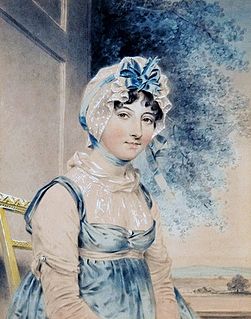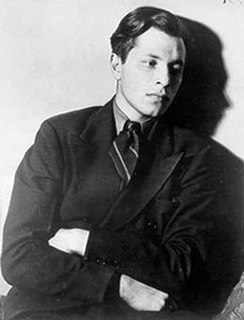A Quote by George Santayana
Christianity persecuted, tortured, and burned. Like a hound it tracked the very scent of heresy. It kindled wars, and nursed furious hatreds and ambitions... Man, far from being freed from his natural passions, was plunged into artificial ones quite as violent and much more disappointing.
Related Quotes
Christianity persecuted, tortured, and burned. Like a hound it tracked the very scent of heresy. It kindled wars, and nursed furious hatreds and ambitions. It sanctified, quite like Mohammedism, extermination and tyranny. All this would have been impossible if, like Buddhism, it had looked only for peace and the liberation of souls. It looked beyond; it dreamt of infinite blisses and crowns it should be crowned with before an electrified universe and an applauding God... Buddhism had tried to quiet a sick world with anesthetics; Christianity sought to purge it with fire.
A man who gives way to his passions is like a man who is shot by an enemy, catches the arrow in his hands, and then plunges it into his own heart. A man who is resisting his passions is like a man who is shot by an enemy, and although the arrow hits him, it does not seriously wound him because he is wearing a breastplate. But the man who is uprooting his passions is like a man who is shot by an enemy, but who strikes the arrow and shatters it or turns it back into his enemies heart.
I once walked into a party, and I had just sprayed myself with an aura of my secret scent. I walked through to greet my friends, and as I walked, the breeze must have lifted my scent into the air. A man who had been looking quite morose at the bar, suddenly started to make his way towards me exclaiming, "What is that scent?" He was literally mesmerized!
It is difficult to say which is the greatest evil--to have too violent passions, or to be wholly devoid of them. Controlled with firmness, guided by discretion, and hallowed by the imagination, the passions are the vivifiers and quickeners of our being. Without passion there can be no energy of character. Indeed, the passions are like fire, useful in a thousand ways, and dangerous only in one--through their excess.
We speak erroneously of "artificial" materials, "synthetics", and so forth. The basis for this erroneous terminology is the notion that Nature has made certain things which we call natural, and everything else is "man-made", ergo artificial. But what one learns in chemistry is that Nature wrote all the rules of structuring; man does not invent chemical structuring rules; he only discovers the rules. All the chemist can do is find out what Nature permits, and any substances that are thus developed or discovered are inherently natural. It is very important to remember that.
But avarice and ambition in the rich, in the poor the hatred of labour and the love of present ease and enjoyment, are the passions which prompt to invade property, passions much more steady in their operation, and much more universal in their influence. Wherever there is great property there is great inequality. For one very rich man there must be at least five hundred poor, and the affluence of the few supposes the indigence of the many.
If you want to judge how well a person understands Christianity, find out how much he makes of the thought of being God's child, and having God as his Father. If this is not the thought that prompts and controls his worship and prayers and his whole outlook on life, it means that he does not understand Christianity very well at all.






































